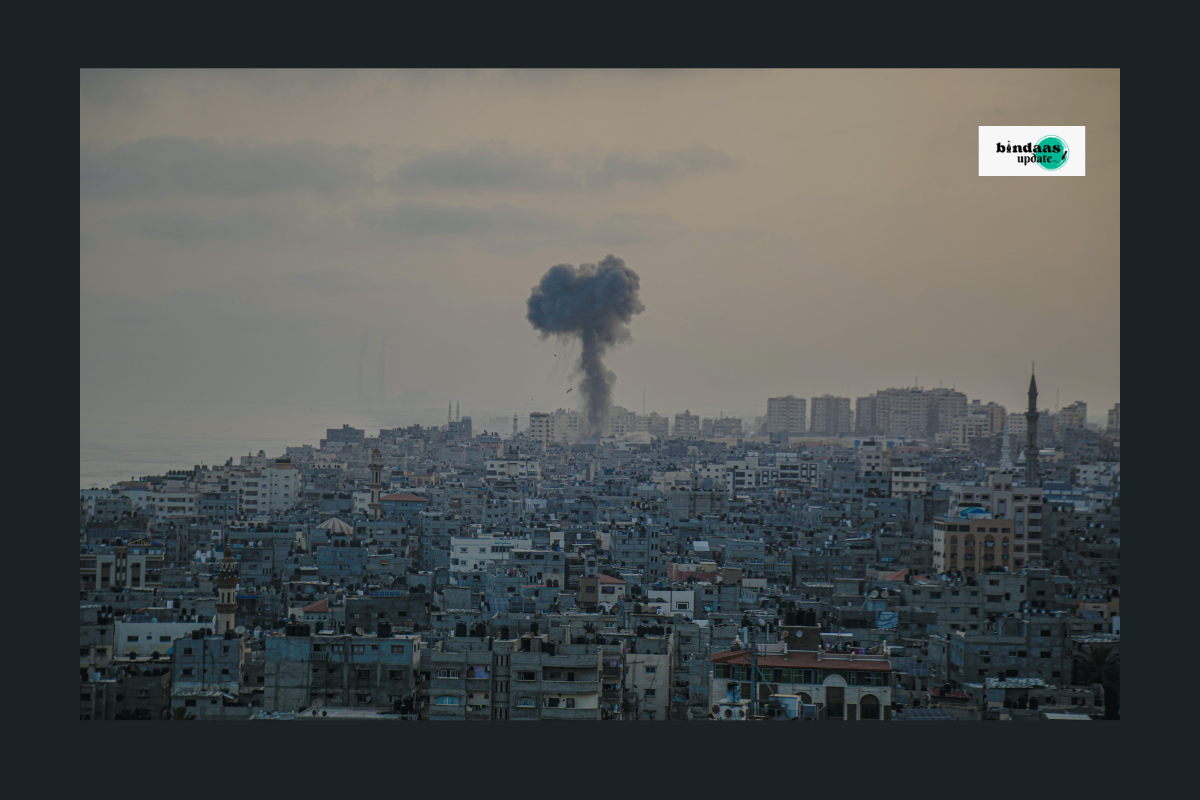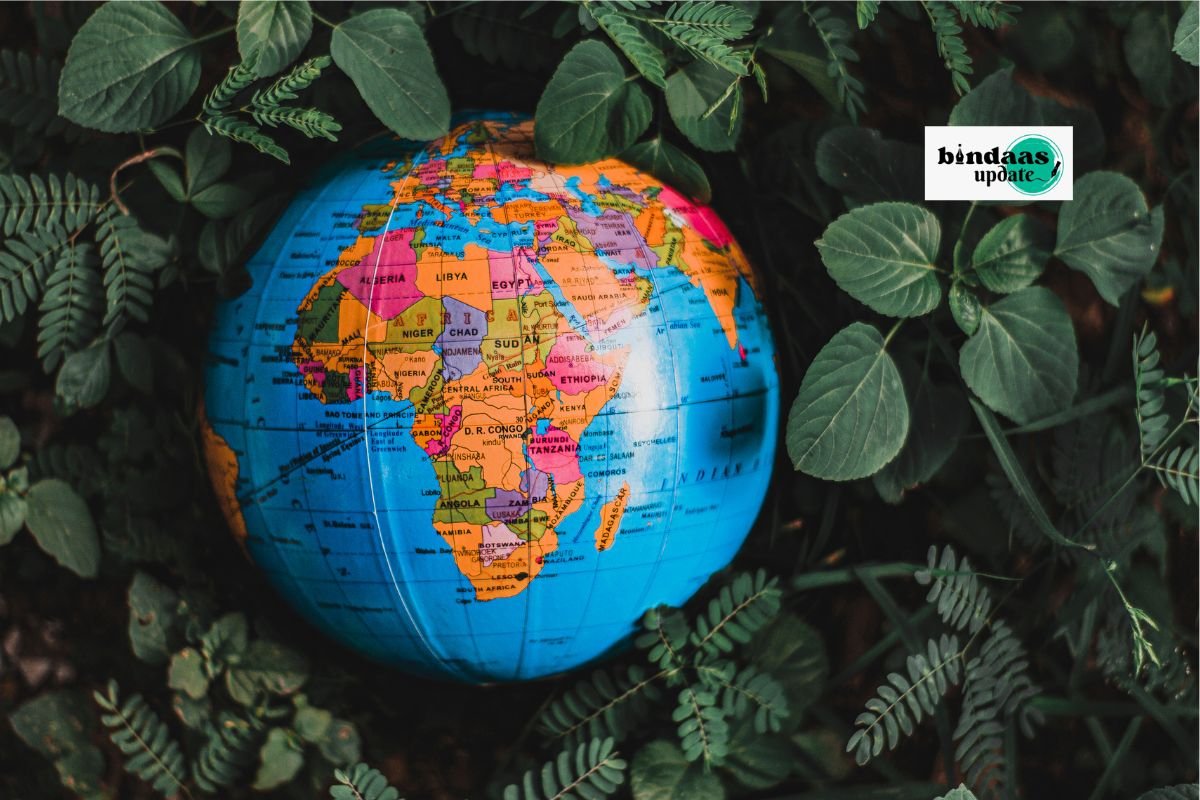Gaza ceasefire veto: The ongoing Gaza conflict took a tragic turn as the United States vetoed a United Nations Security Council resolution calling for an immediate ceasefire. As violence escalated in the region, this move drew sharp criticism from human rights organizations and global leaders alike. On the same day the veto was issued, over 95 Palestinian civilians, including many children and women, were reportedly killed in fresh Israeli airstrikes.
This humanitarian emergency has triggered an outpouring of concern from UN officials, who warn that critical aid supplies are being blocked or delayed, risking the lives of thousands of innocent civilians.
The UN Security Council recently proposed a resolution demanding a ceasefire in Gaza, as the death toll continues to rise sharply. Despite support from the majority of council members, the resolution was blocked by a veto from the United States, which cited concerns about language that it believed could interfere with ongoing diplomatic negotiations.
This marks the fourth time the US has used its veto power during this conflict, raising serious questions about its position on international peace efforts and humanitarian law.
UN Humanitarian Chief: “Aid Is Being Intentionally Blocked with Gaza Ceasefire Veto”
Martin Griffiths, the UN’s Under-Secretary-General for Humanitarian Affairs, made a powerful statement this week accusing Israel of deliberately obstructing the delivery of humanitarian aid to Gaza. He described the current situation as “unacceptable and worsening by the day.”
Griffiths emphasized that medical supplies, food, and water are not reaching people in desperate need. Gaza’s health system is on the verge of collapse, with hospitals running out of electricity and medicine. Many children are suffering from malnutrition and trauma as the war drags on.
One of the Deadliest Days in Gaza Since 2022 after Gaza Ceasefire Veto.
Tuesday witnessed one of the bloodiest days in Gaza since the full-scale war reignited in 2022. According to Palestinian health officials, at least 95 people were killed in a single day, most of whom were civilians sheltering in residential buildings. The strikes reportedly targeted homes and public spaces.
This sharp rise in casualties has once again brought global attention to the plight of Gaza’s population, which has been trapped in a warzone with no safe passage or meaningful humanitarian relief.
Countries across the world responded with anger and disappointment over the US veto. Several European nations, along with Canada and South Africa, expressed deep frustration with Washington’s move. Arab League members condemned the veto as a “green light for more civilian killings.”
International NGOs, including Amnesty International and Médecins Sans Frontières (Doctors Without Borders), called on all sides to prioritize the protection of civilians and allow unrestricted humanitarian access.
In defense of its decision, the US Ambassador to the UN, Linda Thomas-Greenfield, said the resolution could “jeopardize ongoing negotiations” between Israel and Hamas, aimed at achieving a broader agreement, including the release of hostages and long-term ceasefire terms.
However, critics argue that delaying a ceasefire is leading to more civilian deaths every day, and diplomatic negotiations are failing to match the urgency of the crisis on the ground.
Despite the failed resolution, some diplomats remain hopeful that back-channel negotiations might lead to a temporary ceasefire in the coming weeks. Talks involving Qatar, Egypt, and other mediators are ongoing, though little has been disclosed publicly.
The UN Secretary-General António Guterres has urged global powers to put aside political interests and focus on saving human lives, calling the Gaza crisis “a moral test for the world.”
Why This Matters for the World
Gaza Ceasefire veto and the worsening situation in Gaza represent more than just a regional conflict. It underscores deeper issues in global diplomacy, accountability, and humanitarian law. When the world’s most powerful institutions fail to protect civilians, it sends a dangerous signal that international law is optional.
Furthermore, the instability is affecting global relations, trade routes, and has even fueled protests across Europe, the US, and the Middle East. The public demand for peace is louder than ever, but meaningful change appears stalled.
As the airstrikes continue and aid struggles to get in, time is running out for many in Gaza. The international community now faces a clear choice: act quickly to enforce humanitarian protections, or risk being complicit in one of the most tragic human catastrophes of the decade.
The Gaza ceasefire veto may be seen as a diplomatic move by the US, but for thousands of people in Gaza, it could mean the difference between life and death.
Also Read: Russia Unleashes Deadliest Drone and Missile Attack on Ukraine: 12 Dead, Dozens Injured Across 30+ Cities.




